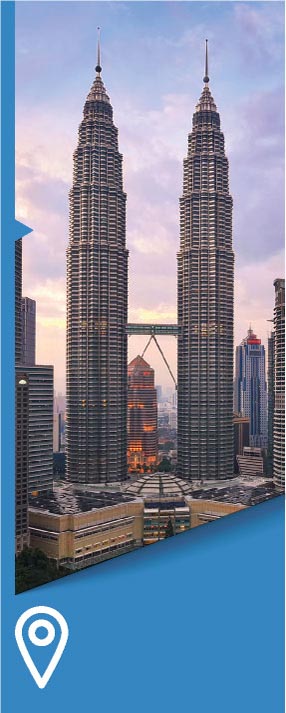Hotel Meeting Room
Hotel Meeting Room

Maintenance Planning, Process Engineering , Instrumentation Training Courses


Maintenance Planning, Process Engineering , Instrumentation Training Courses
Hotel Meeting Room
Hotel Meeting Room Barcelona
Barcelona
Classroom
Overview ?
The military initially pioneered preventive maintenance as a means to increase the reliability of their naval vessels. By simply expending the necessary resources to conduct maintenance activities intended by the equipment designer, equipment life is extended and its reliability is increased. In addition to an increase in reliability, more money is saved in comparison to the cost of a program just using reactive maintenance. Studies indicate that these savings can amount to as much as 12% to 18% on the average. Depending on a facility's current maintenance practices, present equipment reliability, and facility downtime, there is little doubt that many facilities are purely reliant on reactive maintenance. By implementing a proper preventative maintenance program, they could save much more than 18%.
This course will give participants an in-depth understanding of preventive and predictive maintenance practices; it will also cover a number of best practice techniques such as Total Productive Maintenance, Reliability Centered Maintenance, Condition Based Monitoring, Failure Modes and Effects Analysis, and Root Cause Failure Analysis.
The course is interactive and is comprised of lectures, case studies, technical process learning and supplemental discussions related to various industries and the challenges of implementation.
This course is designed for all Maintenance Managers/Engineers, Supervisors and Planning Engineers. It is also suitable for those who are in operations, engineering and purchasing/materials divisions and who would like to acquire an understanding of how the quality of the maintenance function affects their department, and their organization's bottom-line.
Day 1
Asset Cost Management Introduction
Definitions of reliability, maintenance & asset management
The total cost of maintenance
Best practice reliability and maintenance processes
Elements of asset management best practice
Auditing performance
Overview of TPM, RCM, BCM, QCM, and other asset management buzzword
Open discussion sessions
Day 2
Laying the Groundwork
Definitions of reliability, maintenance & asset management
The total cost of maintenance
Best practice reliability and maintenance processes
Elements of asset management best practice
Auditing performance
Overview of TPM, RCM, BCM, QCM, and other asset management buzzword
Open discussion sessions
Day 3
Applying the Value based Process
Definitions of reliability, maintenance & asset management
The total cost of maintenance
Best practice reliability and maintenance processes
Elements of asset management best practice
Auditing performance
Overview of TPM, RCM, BCM, QCM, and other asset management buzzword
Open discussion sessions
Day 4
Ensuring the Continuity of the Value-based Process
Definitions of reliability, maintenance & asset management
The total cost of maintenance
Best practice reliability and maintenance processes
Elements of asset management best practice
Auditing performance
Overview of TPM, RCM, BCM, QCM, and other asset management buzzword
Open discussion sessions
Day 5
Supporting Process that Lower Life-cycle costs
Definitions of reliability, maintenance & asset management
The total cost of maintenance
Best practice reliability and maintenance processes
Elements of asset management best practice
Auditing performance
Overview of TPM, RCM, BCM, QCM, and other asset management buzzword
Open discussion sessions
Training Methodology
Pathways Training and consulting adopts the newest techniques of human resources Training and consulting and, with the following:
Course name
Duration
City
Price

View course

View course

View course

View course

View course

View course